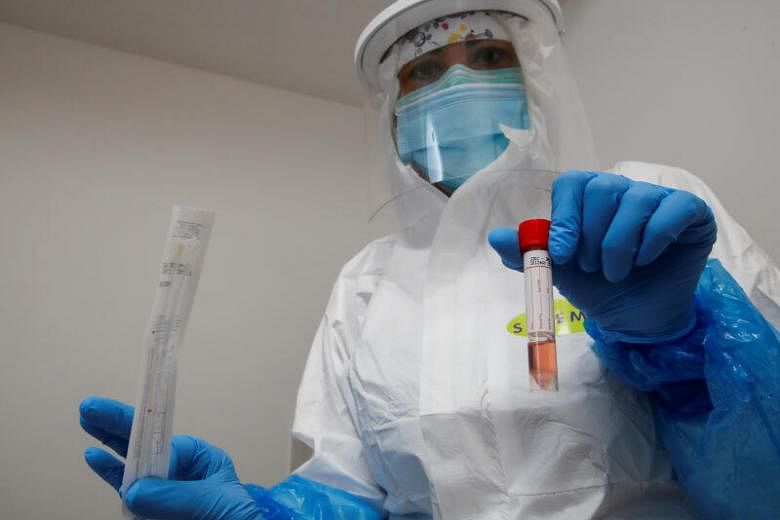LONDON • Professor Chris Whitty, Britain's chief medical adviser, stood before an auditorium in a London museum two years ago cataloguing deadly epidemics.
From the Black Death of the 14th century to cholera in war-torn Yemen, it was a baleful history.
But Prof Whitty, who had spent most of his career fighting infectious diseases in Africa, was reassuring.
"Being rich," he explained, would protect Britain.
Wealth "massively hardens a society against epidemics", he argued, and quality of life - food, housing, water and healthcare - was more effective than any medicine at stopping the diseases that ravaged the developing world.
His confidence was hardly unique. As recently as February, when European health ministers met in Brussels to discuss the coronavirus emerging in China, they commended their own health systems and promised to send aid to poor countries.
"Responsibility is incumbent on us, not only for Italy and Europe, but also for the African continent," said Italy's Health Minister Roberto Speranza.
Barely a month later, the continent was overwhelmed. Instead of merely providing aid to former colonies, Western Europe became an epicentre of the pandemic.
Officials once boastful about their preparedness were frantically trying to secure protective gear and materials for tests, as death rates soared in Britain, France, Spain, Italy and Belgium. This was not supposed to happen.
Many European leaders felt so secure after the last pandemic - the 2009 swine flu - that they scaled back stockpiles of equipment and faulted medical experts for overreacting.
They boasted of the superiority of their world-class health systems but had weakened them with a decade of cutbacks.
Thousands of pages of national pandemic planning turned out to be little more than exercises in bureaucratic busy work.
Mathematical models used to predict pandemic spreads - and to shape government policy - fed a false sense of security.
National stockpiles of medical supplies were revealed to exist mostly on paper, consisting in large part of "just in time" contracts with manufacturers in China.
Sir David King, a former British chief scientific adviser, said: "The word 'arrogance' comes to mind, I am afraid... What hubris."
The experts had drawn up their plans based on the 2009 swine flu that infected hundreds and killed dozens in Mexico.
Britain's swine flu pandemic plans estimated that more than 1.3 million people could be hospitalised and 800,000 could die.
Trying to contain the pandemic "would be a waste of public health resources".
These doomsday scenarios drew on a new sub-speciality of epidemiology pioneered by British scientists - using abstruse mathematical models to project the path of a contagious disease.
Some experts now say Europe learnt the wrong lesson from the swine flu.
"It created some kind of complacency," said Professor Steven Van Gucht, a virologist involved in the Belgian response. "Oh, a pandemic again? We have a good health system. We can cope with this."
Dr Emmanuel Andre, who spent years fighting epidemics in Africa before advising Belgium on the coronavirus, said: "They keep on telling (African) countries what they should do, very clearly.
"But all these experts, when it happens in your own countries? There's nothing."
He added: "One lesson to learn is humility."
NYTIMES











